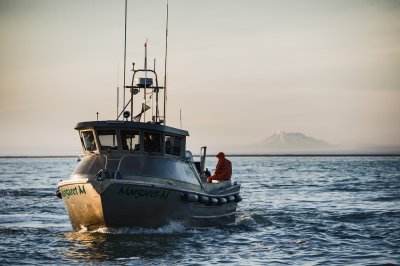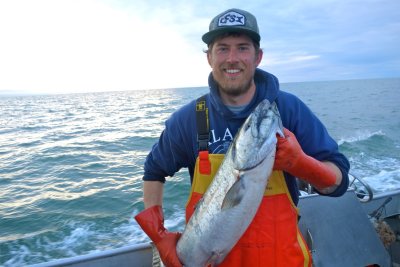Ian Vincent: One Man’s Painful Path to Clarity
Ian Vincent, Men’s Resiliency specialist with Western’s Counseling Center, by his own admission didn’t come to Western as a student in 2012 feeling super-focused or driven.
In fact, it was just the opposite.
After stints at two community colleges and the Art Institute of Seattle, Vincent moved into Nash with an idea to do some scholarship around comparative religions, but really just planned to sort of wing it and see how things panned out.
As a 21-year-old first-year Western student, he said his role almost immediately became one of a “big brother” to the younger floormates, many of whom were away from home for the first time.
“Our floor got very close, very quickly, and remained that way. We all sort of latched onto each other,” he said.
Our floor got very close, very quickly, and remained that way. We all sort of latched onto each other.
Vincent was still not zeroed in on a field of study that wowed him, but he had a core group of friends and felt he was in the right place.
Then, that spring, everything changed.
In April, as the first cherry blossoms were opening and campus was at last casting off the gray mantle of another long winter, one of his floormates took his own life, an action that would forever alter the direction of Vincent’s own path.
“I was just a wreck, we all were,” he said. “Nobody had an inkling that something like this was on his mind. Part of that was that we didn’t know what to look for; the other was that we probably wouldn’t have known what to say, to him or to anyone else. For the most part, society doesn’t equip men to talk about things like that with other men – it’s a barrier most of us have real problems navigating.”
How did he not know that his friend had gotten to this place? After all, he was the floor’s “big brother” – it was his job to know. What signs did he miss? What could he have done?
“I just kept asking myself these questions, over and over, but I had no answers,” he said.
He came back to Western in the fall shaken but ready to try and move on, but again fate intervened. Over the course of that school year, he would suffer through the breakup of a longtime relationship, the natural deaths of three family members including his grandmother and grandfather, and, in November, a friend and former floormate from Nash, who had left school the previous year, also took his own life.
He was devastated.
“I kept thinking that I could just ‘tough my way through it,’ but in reality, I was bottoming out. I was depressed. I was sure I had no future, and that was when I also began having suicidal ideation,” he said. “I felt rudderless.”
It took a physical manifestation of that stress to finally convince Vincent that he needed to seek help; he was so on edge that he would get panic attacks that resulted in minor seizures or with him passing out. Finally, after the death of his grandfather, at absolute rock bottom, Vincent reached out for help.
“I ended up talking with Brennan Gilbert, who was at the time coordinating men’s resiliency efforts at Western and is now an instructor in the Psychology Department, and I think he saved my life,” he said. “He got me to see that I had spent all my energy trying to help other people, as a way of not needing to address my own needs and the fact that I needed help myself. And I finally sought out that help – professional help.”
One day he was driving back to Western and as is often case of people suffering from illnesses like depression and anxiety, he hadn’t been sleeping well. He dozed off at the wheel, and as the car’s tires left the road and entered the shoulder, Vincent woke up with a start.
“In that second or two I was asleep, I actually had been having a dream, and the only scene I can really remember was that of my friends crying, the same way we had all cried over our friends when they had taken their own lives,” he said. “When I woke up and had the car back under control, I knew, finally, that I didn‘t want to die after all.”
It was a close call, but one he looks back on as being pivotal.
Starting Over
Slowly, Vincent began to pull himself out of the hole that had been dug for him.
“Brennan told me that I should write about my experiences over the past year or so, even if it was just a journal for myself to read,” he said. “That was huge, because it gave me purpose again. Then, I began volunteering with Western’s BRAVE (Building Resilience and Voicing Empathy) program, and began to feel like not only was I getting better, but that I was gaining insight into what I wanted to do with my life.”
Vincent also had a pivotal meeting with former WWU vice president Eileen Coughlin.
“Eileen just sat me down, and looked at me and said that whatever it was going to take to get me through this, that she was going to support me – that Western was going to support me. I can’t tell you how important that was, because that’s all I think I really needed – to feel supported,” he said.
Eileen just sat me down, and looked at me and said that whatever it was going to take to get me through this, that she was going to support me – that Western was going to support me. I can’t tell you how important that was, because that’s all I think I really needed – to feel supported.
Around this time, Vincent was interviewed for a story in Klipsun in which he admitted to his previous thoughts around suicidal ideation.
“Sadly, I didn’t realize how soon the article would be out, and my parents saw it before I could tell them that my depression had become so advanced,” he said. “They were pretty freaked out.”
“When my dad said he had noticed that I was down, I was furious. You knew, and you didn’t say anything? But in the end, the realization that he loved me, that he knew there was something wrong, but that he was incapable of asking me about my feelings – was a huge breakthrough for me,” he said.
After analyzing how he had communicated with other men – from his father to his friends to his floormates in Nash – he knew that if he had healthier relationships that broke down these barriers of communication, he would have fared so much better through those incredibly tough times.
“We need to reach out and do better, which is a huge part of what I do now. And maybe the hardest lesson to learn through all that was that suicide is preventable, and I have a role in that,” he said.
The Helping Hand
After graduating, Vincent became the Men’s Resiliency specialist at Western. His role now is to connect students with each other, and with additional resources on campus when they need help.
“The typical student who comes into my office reminds me so much of myself five years ago. They have trouble forming authentic friendships, and I try to help them get past that,” he said.
“It’s interesting how many men use substances as the way of overcoming barriers and having authentic conversations,” he said. “We want to have dialogs like these that don’t require substances to get started.”
For example, Vincent capitalizes on his love of fishing to co-host with the WWU Fly Fishing Club a student retreat called “Casting for Care,” where over the course of a daylong outing, they create a space in which young men have the ability to express their thoughts openly, in an endeavor to better understand what it means to be a better man.
“I had a student tell me that he shared more over the past five hours of the retreat than he had over the past five years with his roommates. That’s what we are trying to get to – the place where being open and honest is the norm, where real conversations about the things around us that affect us take place as a matter of course, because that’s what being healthy is all about,” he said.
For the same reason, Vincent has been an avid supporter and active facilitator in a number of sessions for Western’s Equity and Inclusion Forum Workshops, and this fall hosted a workshop titled “What are We Teaching Our Boys?” All the Equity and Inclusion workshops are free and open to all faculty, staff, and students by registering at through the WWU training portal at http://training.wwu.edu/classes; new classes for winter quarter will be added soon.
A full school year facilitating these types of conversations – no matter how much you love your job – can be taxing, so Vincent, just as he started doing in college, spends his summers as a commercial fisher in Alaska’s Bristol Bay; tattooed on his left forearm is a Bristol Bay landscape within the body outline of a wild brook trout.
“Bristol Bay restores me. I need it,” he said. “But even there, with the guys on the boat, I’m trying out these conversations. Pushing them to talk to me in ways that they aren’t necessarily used to. I guess it’s just who I am now,” he said.
“I just have to be myself,” he said. “Because getting here was a journey.”
-------------------------------------------------------
Do you think you might need help? Here are some of the campus resources available to you:

